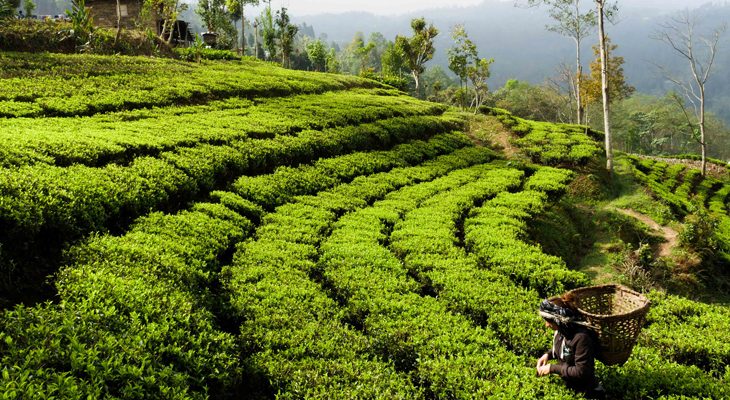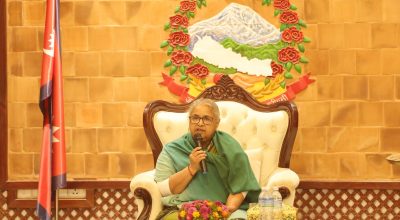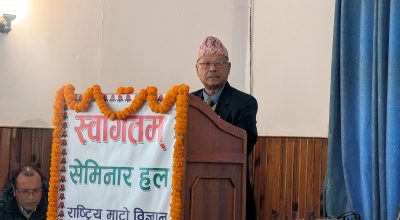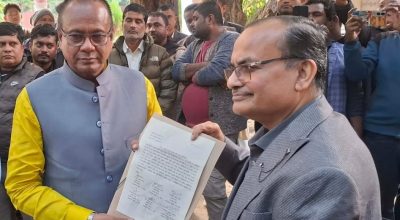
Kiran Poudyal/RSS
ILAM: ‘Ilame Sahar, Chiyabari Ramro, Tyahi Paryo Ghar Hamro’. It is a line of the song which popularized the relation between Ilam and tea garden.
The song not only celebrates the tea estate but also the love. Ilam is known for its swathes of lush tea gardens that add to the natural beauty of the place.
It whets curiosity to anyone to know how beautiful the tea estate is in Ilam. But the tea estate run by the government is so poor that it contradicts the song now. Although other tea estates are not that best in the district, state of the one at district headquarters Ilam is visibly sorry.
No wonder then, if one is greeted with depleting shrubs of tea with no trimming, weeding nor new cultivation. The first tea estate of the country carrying a significant history has diminishing value.
It was established in 1920BS after Rana Prime Minister Junga Bahadur Rana brought tea sapling from China and planted here to make the garden. Even the first tea factory is also here. The local historian and senior citizens remind that then badahakim (governor) of Ilam Gajraj Singh Thapa planted the tea for the first time in Nepal.
With the neglected state- no conservation of the tea garden- it is reducing day by day. The species of tea cultivated here is regarded rare.
The management of estate is ignored although the tea is reducing gradually. In 2057BS, the government had given authority to manage the tea gardens to Triveni Sanghai Group in lease with its 65 percent share.
The gardens as Ilam, Kanyam, Shoktim, Chilimkot of Ilam and Barne, Baradashi and Tokala of Jhapa were given to the Triveni Sanghai Group.
The old tea plants are also the reason behind reducing garden. In 1922BS, tea cultivation had begun at Shoktim, southern belt of Ilam and later the green leaves were processed with the factory set up in 1940BS. The historical factory is ruined and the garden declining.
With the local levels in place, the people’s representatives here have demanded the federal government to transfer them authority to manage the tea gardens. However, the federal government has not paid attention to it.
The first municipal assembly of Ilam Municipality had decided to bring the Ilam tea estate under its ownership, while Mai Municipality has demanded the authority on Soktim and Chilimkot tea estates.
Mayor at Ilam Municipality, Mahesh Basnet, said, “Although the Ilam Tea Estate and industry bear historic importance, the industry is bled dry. So, we’re devoted to take the authority to manage this estate.”
Similarly, Suryodaya Municipality Mayor Ran Bahadur Rai and Mayor at Mai Municipality Dipak Thebe also stressed the need to bring the estates under the jurisdiction of local governments to save its history and value.
In this regard, Subash Sanghai representing Sanghai Group argued the tea production declined hugely because of random construction of road and infrastructures inside the estates.
The ongoing construction of a building by Ilam Municipality in the tea estate also drew huge dispute. The locals expressed severe concern over it.
However, the municipality has not backtracked from the decision to construct the building, claiming that the area belonged to the Municipality and it was not encroaching upon the tea garden.
















